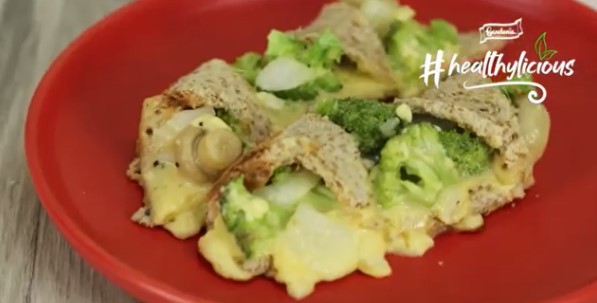In the Mood for Food
How are you feeling? Have you been stressed? A worldwide pandemic was not something we saw coming and while it seems to be slowing down as we return back to our ‘normal’, the process of return can’t be that easy. The Philippine WHO Special Initiative for Mental Health conducted in the early part of 2020 shows that at least 3.6 million Filipinos suffer from one kind of mental, neurological and substance use disorder (DOH, 2020). Estimates show at least 25% increase globally in both anxiety and depressive disorders during the first year of pandemic alone (WHO, 2022). So if your answers to the questions above fall on the negative side, know that you’re not alone.
As we celebrate World Mental Health Day this month, a call to make mental health and well-being a global priority for all is at its loudest. As individuals, we can take part in this much more than we think. We are not just a part of a number, we all matter and so does our individual mental health.
Now, when we think about mental health, most of us would generally think more about our brains than about our guts. What if we tell you to think again? More and more studies have linked diet quality and gut health to one’s susceptibility to mental ailments. The notion that good bacteria does not only influence your gut but also your mood may sound new to some but it has been widely studied during the recent years. Gut bacteria produce an array of neurochemicals that the brain uses for the regulation of physiological and mental processes, including our mood (Clutter, 2020).
So does that suggest psychological interventions should be replaced and abandoned? Not at all. As mental health is multi-factorial, it requires a holistic approach to wellness. The studies found that adhering to a Mediterranean-style diet – a diet rich in whole grains, fruits, vegetables, beans and nuts- provided benefits to people suffering depression while conversely, a Western-style diet – a diet involving high intake of red and processed meats, refined grains and sweets, as well as low intake of fruits and vegetables- was linked to a significantly increased risk to depression (McGrane, 2021).
What’s with Mediterranean-style diet that it produces this benefit? The studies point at the role of the nutrients this type of diet can provide – lots of natural antioxidants and fiber. Eating fruits and vegetables with darkly pigmented colors helps ensure a healthy antioxidant intake. Several antioxidants have been found to either directly dampen depressive symptoms, or are associated with a lower incidence of depression (Selhub, 2020). Additionally, they are a good source of fiber too. High fiber intake which is broken down to short-fatty acids by the gut is associated with lower rates of depression and can directly protect the body from falling into depressive behaviour (Clutter, 2020).
Based on the Philippine Dietary Reference Intake, 20-25g of fiber per day is recommended. Meeting this might be a challenge but the good news is Gardenia breads particularly Gardenia’s Whole Wheat Bread can provide you 20% of your daily fiber requirement just from 2 slices alone. You can even try it with your veggies for that extra antioxidant boost. Check out our Baked Vegetable Twist recipe using our Gardenia High Fiber Wheat Bread for a good source of fiber, calcium and iron.

Baked Vegetable Twist
Ingredients:
- 6 slices of Gardenia High Fiber Wheat Bread
- 2 pcs Whole eggs
- 1/2 cup Cream cheese, softened
- 1/4 cup Cheddar cheese, grated
- 1/2 cup Button mushroom
- 1 pc White onion, diced
- 1/2 cup Brocolli
- Salt and pepper, to taste
Procedure:
- In a Bowl, combine eggs, cream Cheese and cheddar cheese together. Mix well.
- Fold in Button Mushroom, White Onions, and Broccoli. Set aside.
- Trim edges of Gardenia High Fiber Wheat Bread. Then flatten the bread using a rolling pin and cut it in half triangular shapes.
- Layer it one by one with the edges attached to each other, and press it down for it to stick to one another.
- Fill the breads with the vegetable filling and close the bread by folding it towards the center.
- Bake it for at least 6-7 minutes.
- Plate and serve.
Incorporating the good-for-mood food or completely switching to a more Mediterranean-style diet may take extra effort at first especially during the pandemic when nothing is certain. There are still lots to uncover on the link between what people eat and their mental health and there might not be an explicit mental health diet thus far, but making these changes no matter how small they are can reap results to one’s overall health. Let’s also remember that while diet may be an important factor for mental health, many other aspects of life can also contribute to mood. Let’s do our part this Mental Health Day and moving forward to promote everyone’s well-being so that the next time someone asks anyone how they are feeling, it can be a feeling that is good.
Sources:
Department of Health. 2020. YOUR MIND MATTERS: DOH CALLS FOR UNIFIED RESPONSE TO MENTAL HEALTH. Accessed via https://doh.gov.ph/press-release/YOUR-MIND-MATTERS-DOH-CALLS-FOR-UNIFIED-RESPONSE-TO-MENTAL-HEALTH
World Health Organization. 2022. World Mental Health Day 2022. Accessed via https://www.who.int/campaigns/world-mental-health-day/2022
Selhub, Eva from Harvard Health Publishing. 2020. Nutritional psychiatry: Your brain on food. Accessed via https://www.health.harvard.edu/blog/nutritional-psychiatry-your-brain-on-food-201511168626
Clutter, Christy. 2020. Of Microbes and Mental Health: Eating for Mental Wellness. Accessed via: https://asm.org/Articles/2020/February/Of-Microbes-and-Mental-Health-Eating-for-Mental-We#
McGrane, Kelli. 2021. Nutrition and mental health: Is there a link? Accessed via https://www.medicalnewstoday.com/articles/nutrition-and-mental-health-is-there-a-link